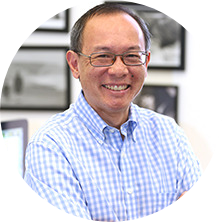The silent language of epithelial cells, and how deciphering it could explain cancer.
Our epithelial cells are our first line of defence. They form the tissue barriers of our bodies – a wall between the inside and the external environment. These cells are like warriors in an army. They work as a system, coordinating their behaviour, communicating amongst themselves to protect us from harm. In the process of warding off germs and toxic substances, cells become damaged. When they do, the other cells in the system eradicate the cell and continue their duty.
But sometimes the system breaks down. Diseases like breast cancer, colon cancer, prostate cancer, and lung cancer are the result. In fact, the vast majority of solid tumours occur in epithelial tissues. How do these cells communicate? What are all the parts of the system? What are the critical functions that can’t be allowed to malfunction? And what happens when they do fail?
Our lab aims to describe the epithelial system and learn the silent language of these microscopic warriors.
Group leader

Professor Alpha Yap
Group Leader, Cadherin cell-cell adhesion and tissue organisation in health and disease
+61 7 334 62013
a.yap@imb.uq.edu.au
UQ Experts Profile
Our approach
In the epithelial system, billions and billions of cells coordinate their behaviour to make barriers. Understanding the critical mechanisms that allow them to do their job will help us to understand how and why their jobs fail.
My team believe that cells communicate amongst themselves through mechanical force, as if they were constantly shaking hands with one another. Changes in force are then detected to alert them to a problem. Exploring this as a communication method within the body is an emerging field of science called mechanobiology.
We are at the leading edge of mechanobiology, which has the potential to explain important aspects of cancer.
You could live with cancer in your body if it stayed where it started. The problem is when it starts to spread. At least in part, the spread is happening because of defective cell communication.
Research areas
*
General enquiries
+61 7 3346 2222
imb@imb.uq.edu.au
Media enquiries
IMB fully supports UQ's Reconciliation Action Plan and is implementing actions within our institute.
Support us
Donate to research
100% of donations go to the cause











